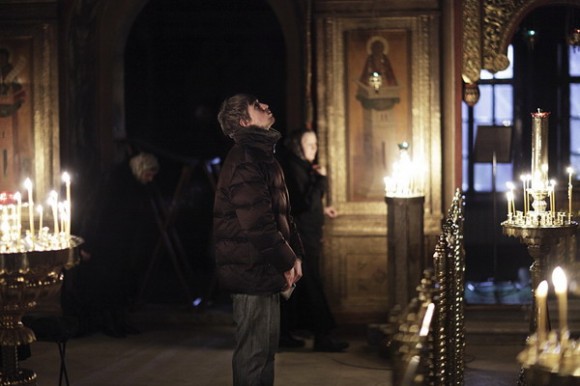See if you can empathize with the following scenario. You are at a public, faith-related gathering, and someone is asked to say a prayer. Perhaps they are praying for someone who is present, or someone who is absent. Perhaps they are praying for a situation. Perhaps they are simply blessing a meal. It doesn’t matter: they start to pray.
Ten minutes later, the ‘prayer’ winds its way to a close, and if you are like me, you breathe an inaudible sigh of relief and suppress a faint sense of irritation. You are forgiven. After all, you have just suffered through a monologue that was part sermon, part theological lecture, part advice-giving to God, part history, part wish list, part thanksgiving for stuff no one really cares about, and part talking to hear the sound of one’s own voice…
Now, don’t get me wrong. I am not judging the intentions and goodwill of folks who desire to offer up themselves and their lives to God in prayer. It just seems to me that the long, rambling self-talks that we so often hear being presented as ‘prayer’ are simply an indication that as people of faith, we have really forgotten what prayer is and how to pray, at least in the way that monotheistic believers have prayed for thousands of years.
What is prayer? That’s the basic question. Many answers may be given, but one fundamental truth remains, best summed up by C.S. Lewis: “Prayer doesn’t change God. Prayer changes me.” By definition, God knows everything and has absolute power over everything. Whatever prayer may be, it cannot tell God things that He doesn’t already know, or make Him do things that He doesn’t already want to do. If we believe in an all-knowing, all-powerful God, our prayer must be simply our humble way of harmonizing our hearts and minds to His will and purpose and intention for the world. Prayer can be nothing more or less than a human way of entering into God’s Presence, to do His will. Whatever the specific words we may use, we are always affirming the same thing: “God, be who You are and do what You do.”
Interestingly enough, God’s people have taken this exact approach to prayer for centuries. Beginning with the traditions of Judaism and continuing with the Christian Church from its inception, prayers to God have simply expanded on the two-part statement above—“Be who You are and do what You do”—in many and various ways.
Classically, prayer begins by reminding ourselves who God is. In ancient Judaism, a typical prayer would identify God as “LORD, God of Abraham, Isaac, and Jacob…” In the New Testament, Jesus fundamentally redefined our relationship to God in prayer when He instructed us to begin by saying, “Our Father who is in Heaven…”
Having identified God, the next step is to expand on this identification by remembering what He has done for His people through the ages. The examples are too numerous to list, but one Eastern Orthodox prayer for repentance and forgiveness refers to God as the One who “pardoned David through Nathan the prophet, Peter who wept bitterly for his denial, the woman weeping at Your feet, the harlot, the Publican, the Prodigal…” If we are praying for healing, we remind ourselves that God is the God who heals the infirm. If we are praying for safe travel, then He is the God who led His people through the wilderness, and so on.
We then ask this God to do what He has always done. Again, I will share one example from the prayer with which Orthodox Christians bless water: “You are our God, who have drowned sin through water in the days of Noah. You are our God who cleft the rock in the wilderness: the waters gushed out, the streams overflowed, and You have sanctified Your thirsty people. You are our God who by water and fire through Elijah have brought back Israel from the error of Baal. Do You Yourself, O Master, now as then sanctify this water by Your Holy Spirit…”
The point is, before we ask God to accomplish certain things in our lives, we remember that He is the kind of God who has done those mighty acts before. This should automatically exclude certain requests from our prayers. I am reminded, for example, of Janis Joplin’s famous tongue-in-cheek song: “Lord, won’t you buy me a Mercedes Benz?”
And let me just say to those ‘prosperity Gospel’ crazies out there that God may have bestowed a ‘Mercedes Benz’ on people in the past, it was never as an answer to prayer. Earthly riches were always a consolation for particular people (Job, for instance) who lived faithful lives despite great suffering and tribulation. Prayer has always been, first and foremost, an alignment of our hearts and minds with God’s will, whatever the earthly results.
At this point you might protest, “Who are you to say that prayer must be anything? Who are you to dictate how I am to pray?” Or you might say, “Well, maybe they prayed that way in the olden days, but this is the 21st century. Times change!”
To both these objections I would simply respond that you are quite free to embark on any monologue you desire, and address that monologue to someone you call God. What He chooses to do with your words is His business, not mine. My only question is, what is the ultimate purpose of your words? Are you trying to impress someone, convince someone, scold someone, make someone feel better, argue someone into something? Or are you simply trying to be united—mind, body and soul—with the One who is all-knowing, all-powerful, who is “the same yesterday, today and forever,” (Hebrews 13:8) and to whom prayer has been offered in the same way (regardless of the specific words) for as long as human beings have spoken to the One God?




















